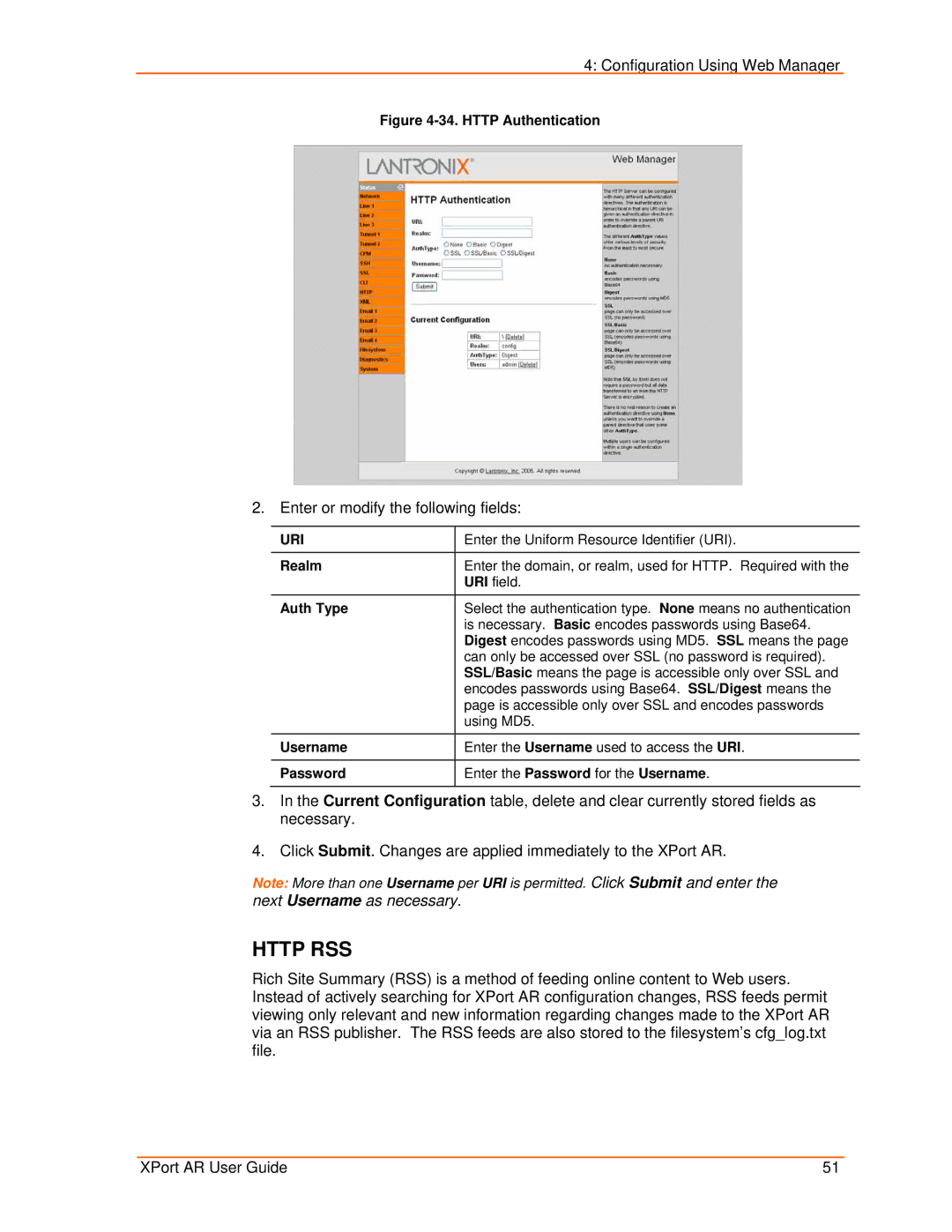
4: Configuration Using Web Manager
Figure 4-34. HTTP Authentication
2. Enter or modify the following fields:
URI | Enter the Uniform Resource Identifier (URI). |
|
|
Realm | Enter the domain, or realm, used for HTTP. Required with the |
| URI field. |
Auth Type | Select the authentication type. None means no authentication |
| is necessary. Basic encodes passwords using Base64. |
| Digest encodes passwords using MD5. SSL means the page |
| can only be accessed over SSL (no password is required). |
| SSL/Basic means the page is accessible only over SSL and |
| encodes passwords using Base64. SSL/Digest means the |
| page is accessible only over SSL and encodes passwords |
| using MD5. |
|
|
Username | Enter the Username used to access the URI. |
|
|
Password | Enter the Password for the Username. |
|
|
3.In the Current Configuration table, delete and clear currently stored fields as necessary.
4.Click Submit. Changes are applied immediately to the XPort AR.
Note: More than one Username per URI is permitted. Click Submit and enter the next Username as necessary.
HTTP RSS
Rich Site Summary (RSS) is a method of feeding online content to Web users. Instead of actively searching for XPort AR configuration changes, RSS feeds permit viewing only relevant and new information regarding changes made to the XPort AR via an RSS publisher. The RSS feeds are also stored to the filesystem’s cfg_log.txt file.
XPort AR User Guide | 51 |
